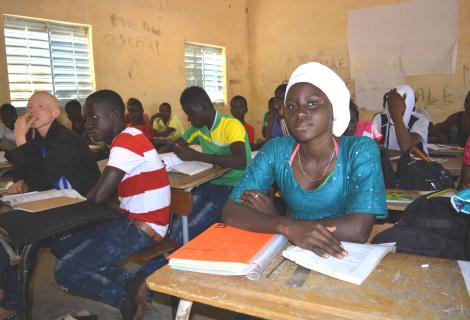
With regard to the situation of Senegalese women, it is witnessed that there has been an increase in the number of women voted into elected office. This bodes well for women's access to decision-making spaces in order to implement gender-sensitive public policies. 44% of deputies are women and the number of elected municipal officials follows the same growing trend. Despite the government's significant and ongoing efforts to reverse the trend, Senegal remains one of the African countries with the highest rates of violence against women. The government has established a telephone line for reporting cases of violence against women and girls, and has launched a national strategy for the abandonment of FGM in Senegal. These are major steps forward, but more needs to be done to address this serious issue.
On education issues, it should be noted that the context was marked by a major crisis in the education sector due to a standoff between the trade union movements and the government, which resulted in a long strike at all levels of education. This crisis, whose main cause was the demand for an increase in teachers' salaries (an old demand of the unions hitherto not satisfied by the government) was resolved thanks to COSYDEP (coalition in synergy for the defense of Public Education) of which ActionAid is a member.
As a key sector of the Senegalese economy, agricultural activity has always been considered to be reserved for men. Although women still make up a considerable share of the agricultural labour force, they have fewer opportunities to exploit natural resources or acquire land. For example, men control 93.6% of cultivated area compared to 6.4%, for women with 16.4% of smallholder households headed by women compared to 83.6% by men. Despite a favorable legal framework and programmes initiated by the Senegalese government to promote a more gender-sensitive approach in the sector, women are still very vulnerable in the agricultural sector.